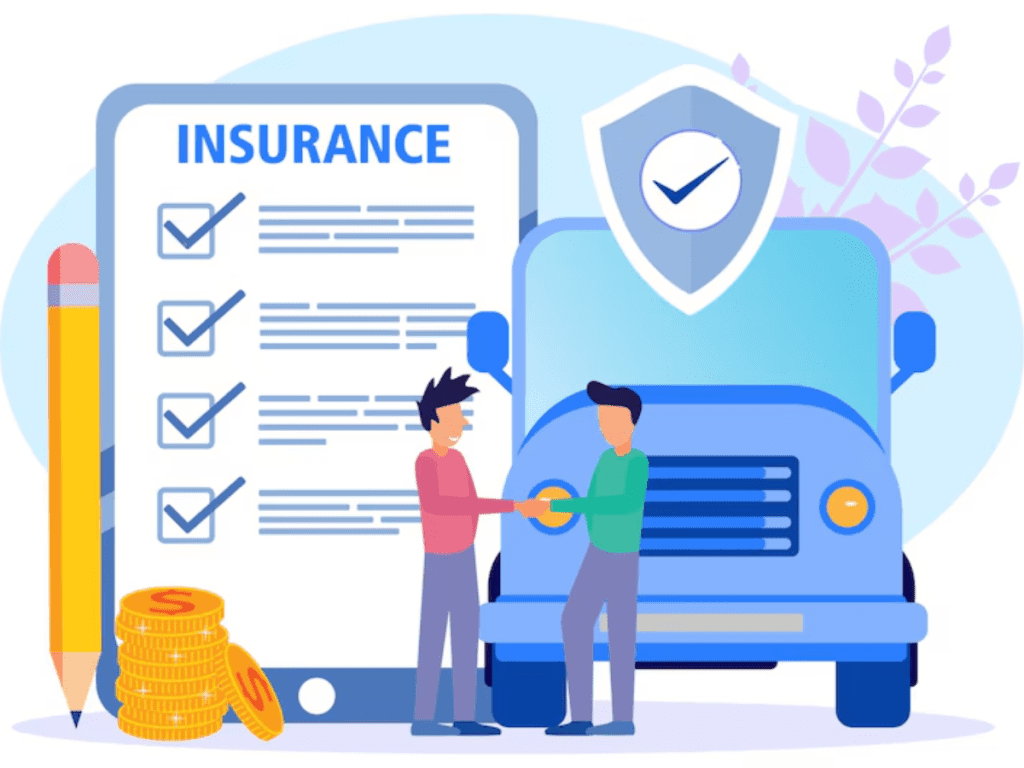Introduction
When you are planning an event, whether it is a small private party or a big public festival, the last thing on your mind is probably risks and liabilities. But despite how thorough the planning and how prepared you are, something can still happen that could lead to significant financial and legal implications. That is where event liability insurance is needed. Event liability insurance is an important coverage that can protect both the event planner and the guests. It can cover against a range of risks, from accidents to damage to property, and even lawsuits. In this in-depth guide, we will discuss what event liability insurance is, why you should have it, what it insures, and how to select the right policy to meet your event. ## What Is Event Liability Insurance?
Event liability insurance is a specialized type of insurance that protects event organizers against financial loss from accidents, injury, or property damage that could happen during an event.
Event liability insurance may cover the event organizers in the event that they are held liable by law for causing harm to the property of others or to individuals attending. The policy is usually intended for short-term activities, like weddings, corporate events, trade fairs, concerts, and festivals, among others. It serves as a cushion, providing financial security for possible mishaps that may result in expensive claims. It is worth noting that although event liability insurance covers a variety of risks, it does not cover all possible situations. For instance, it might not cover damages to personal property of all kinds or losses due to business interruptions. The types of coverage available to you will be based on the details of your event and the policy you choose.
Why Do You Need Event Liability Insurance?
Some event organizers might be unfamiliar with all the risks entailed in producing an event. Even the most properly planned and best-organized parties can suffer unforeseen occurrences that could cost the organizers either money or prompt lawsuits. Insurance coverage for an event is indispensable as a protective device against those dangers. You will have to bear the expenses yourself, if financial, including lawyers’ fees, doctors’ bills, or even repairs on others’ properties, without that.
One of the primary reasons for purchasing event liability insurance is the risk of lawsuits.
Things go wrong, and even if you are not technically responsible, you can still be held accountable. For example, if a guest trips and injures themselves at your event, or if equipment you are utilizing injures people in attendance, you can expect to receive claims for bodily harm or property damage. Legal defense and settlements for claims of this sort can be very expensive. Event liability insurance will pay for these expenses and prevent you from becoming financially ruined. Aside from protecting the event organizer against lawsuits, event liability insurance also protects the venue where your event is being held. Most venues insist that event organizers have liability insurance as a condition of the rental agreement. This way, the venue can be assured that they will not be liable in case something happens during the event.
Furthermore, obtaining this insurance provides peace of mind. As the event organizer, you will likely have a long list of tasks and responsibilities to manage. With event liability insurance in place, you can focus on executing the event with confidence, knowing that you are protected from a wide range of potential risks.
Different Types of Event Liability Insurance
Event liability insurance is not a one-size-fits-all proposition. There are a number of different types of policies, and the one that is best for you will depend on the nature of your event and the risks involved. Let’s examine some of the most popular types of event liability insurance and what they cover.
General Liability Insurance
General liability insurance is the most fundamental and widely used type of event liability insurance.
This type of coverage generally insures against third-party bodily injury, property damage, and personal injury claims that arise from activities during the event. An example is if a guest trips over a cord at your event and gets hurt; general liability insurance will pay for medical expenses and attorney fees if the guest chooses to sue. This is a necessity for nearly any event, whether it be a private party or public festival. ### Liquor Liability Insurance
If alcohol will be served at your event, you will probably require liquor liability insurance.
This type of policy guards against damages involving alcohol use, such as when a guest becomes drunk and harms themselves or others. For instance, if a guest overindulges in your celebration and then gets into a car accident on the road after leaving your party, liquor liability insurance might pay for the damages and attorney fees from the accident. This insurance may be necessary in some states or venues if liquor is going to be served, so it needs to be added to your event insurance. ### Cancellation Insurance
At other times, unexpected events like a natural disaster, disease, or a supplier failure may lead to an event’s cancellation.
Cancellation insurance provides protection for the financial losses incurred in such an event, such as deposits, booking fees, and other non-refundable expenses. This is especially crucial for large events where huge investments have been made. For instance, if an event space has to be shut down because of a local crisis or an entertainer gets ill, this protection can assist you in getting the money back that you invested prior to the cancellation. ### Vendor Insurance
In planning an event, you are likely to be dealing with multiple vendors, including caterers, entertainers, and decorators.
Vendor insurance shields you from complications that can happen as a result of the behavior or negligence of these vendors. For instance, if the caterer provides food that results in food poisoning, or if a vendor ruins the venue, vendor insurance will assist in covering the expenses incurred due to the mishap. It is wise to make sure that the vendors you hire possess their own insurance coverage to avoid risks. ### Participant Accident Insurance
If your activity is of a physical nature like a sporting competition, race, or fitness activity, participant accident insurance is an important kind of coverage. The policy provides medical costs for participants who are hurt during the activity. This may cover competitors, volunteers, or even spectators who get hurt. For instance, if a participant got hurt during a marathon while running, participant accident insurance would pay for their medical expenses and treatment.
Event Equipment Insurance
For occasions that need special equipment like sound equipment, lighting, stages, or tents, event equipment insurance can help pay for loss or damage. If any of the rented or owned equipment is stolen, lost, or damaged during the event, this insurance will assist you in recovering the replacement cost or repairing it. This is particularly critical for major events that have much dependence on technical equipment.
What Does Event Liability Insurance Cover?
Event liability insurance can cover a broad range of incidents and risks. Below are some of the most common types of coverage included in event liability policies:
Bodily Injury
One of the primary coverages provided by event liability insurance is protection against bodily injury.
If a guest or participant is hurt at your event, you could be held responsible for paying their medical bills and legal fees if they sue you. For instance, if a person slips on a slippery floor and breaks an arm, your event liability insurance will pay for their treatment and legal fees in relation to their claim. ### Property Damage
Event liability insurance also covers property damage. This may be damage to the venue, equipment, or attendees’ or vendors’ property. For example, if your event results in a spill that damages the flooring at the venue or a rented sound system is damaged during the event, your policy can assist in paying for repairs or replacement.
Personal Injury
Personal injury coverage usually covers you against defamation, false advertising, or wrongful eviction claims that may occur during your event. For instance, if you are accused of defaming someone’s business during your event or if you remove someone from the premises and they sue you for wrongful eviction, your policy can pay for the related legal fees and damages.
Medical Payments
Some event liability policies also cover medical payments, which pays for minor injuries sustained during the event, irrespective of fault. This coverage can cover first-aid services or payment for medical treatment incurred by an injured party.
Legal Fees
Event liability insurance usually pays legal fees if you are sued and face a legal claim or lawsuit. Legal defense fees can quickly become exorbitant, and event liability insurance can pay for attorney fees, court fees, and any settlement or judgments if you are sued because of something that happens during your event.
How to Select the Right Event Liability Insurance
When choosing event liability insurance, it is necessary to take into account the individual requirements and exposure of your event. Certain issues to consider include the number of people attending, the venue for the event, the nature of activities involved, and whether liquor will be provided. By diligently evaluating the unique risks inherent to your event, you can match your insurance coverage to deliver the most suitable protection.
It’s equally crucial to employ the services of a seasoned insurance company that is able to counsel you through this process and make recommendations on optimum coverage for your event. Take care to question policy limits, exclusions, and any extended coverage options.
Event Liability Insurance Costs
Event liability insurance costs tend to vary considerable depending on what kind of and how large-scale your event actually is.
Small events, like personal parties or minor gatherings, could only need several hundred dollars worth of coverage. Large events, like festivals or conventions, will cost thousands of dollars in premium insurance. Event size, how many people attend, how long it lasts, and where it is held can all play roles in determining how much the policy will cost. It’s crucial to comparison shop and look for prices from various providers to make sure you are getting the best bang for your buck on your coverage. Event insurance may also be included in a rental package from some venues, which would save you money overall in coverage.
Conclusion
Event liability insurance is an important investment for any event planner, no matter if you are throwing a private party or a big public event.
It provides protection against a wide range of risks, including injuries, property damage, and legal claims, helping to safeguard both the event organizer and the attendees. By understanding the different types of coverage available and selecting the right policy for your event, you can ensure that you are prepared for the unexpected. Whether you are having a small wedding or putting on a large conference, event liability insurance provides the peace of mind necessary to concentrate on ensuring your event is a success without exposing yourself to possible financial and legal risks.

